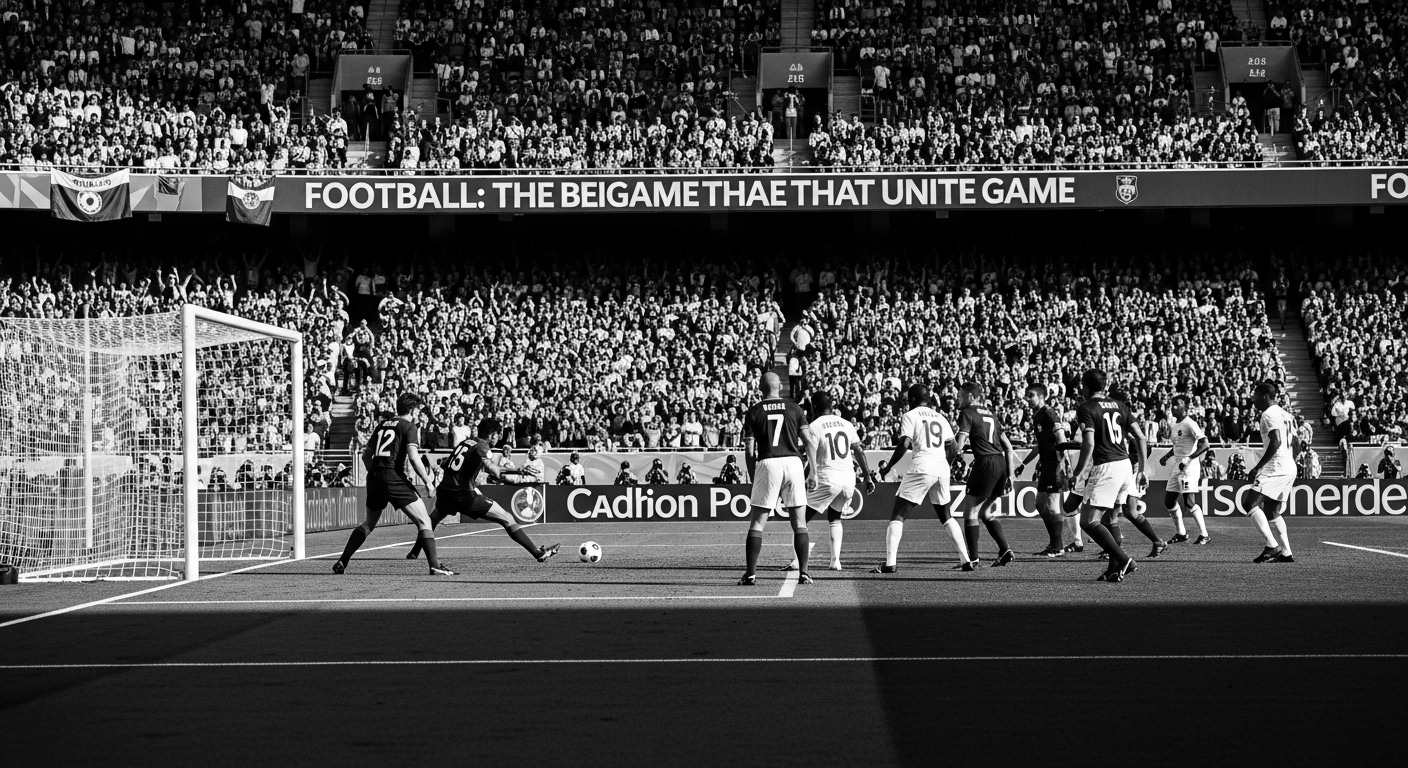In the heart of Faisalabad, just like in countless towns and colossal stadiums across the globe, the word “football” evokes an immediate surge of passion. It’s the roar of the crowd, the perfectly timed pass, the breathtaking save, and the sheer ecstasy of a goal. More than just a sport, football – or soccer as it’s known in some parts of the world – is a global language spoken by billions, a cultural phenomenon that transcends borders, languages, and social divides.
The Simplicity and Complexity of “The Beautiful Game”
At its essence, football is remarkably simple: two teams of eleven players aim to score by putting a ball into the opposing team’s goal, primarily using their feet, head, or chest. The goalkeeper is the only player permitted to use their hands within their designated area.
Yet, within this simplicity lies a profound complexity:
- Strategic Depth: From intricate formations to lightning-fast counter-attacks, defensive masterclasses to relentless pressing, the tactical battles between managers are as compelling as the action on the pitch.
- Individual Brilliance: The sport showcases astonishing individual skill – a mesmerizing dribble, a pinpoint long pass, a thunderous shot from distance, or a gravity-defying acrobatic save.
- Teamwork and Cohesion: No single player can win a game alone. Success in football hinges on seamless communication, understanding, and selfless teamwork, where each player contributes to a collective goal.
- Emotional Rollercoaster: A single match can swing from despair to elation in moments, filled with drama, tension, and unpredictable twists.
A Global History: From Ancient Kicking Games to Modern Spectacle
The roots of football can be traced back to various ancient kicking games played in China, Greece, and Mesoamerica. However, the modern game we know today largely developed in England in the 19th century. Various public schools played different versions, leading to the need for standardized rules. In 1863, the Football Association (FA) was formed in England, codifying the Laws of the Game and marking the birth of modern football.
From there, the game rapidly spread globally, largely due to British influence. By the early 20th century, it was firmly established across Europe, South America, and parts of Asia and Africa. The formation of FIFA (Fédération Internationale de Football Association) in 1904 provided an international governing body, culminating in the inaugural FIFA World Cup in 1930 – an event that would go on to become the world’s most watched sporting spectacle.
Football’s Unrivalled Reach: A Universal Language
What truly sets football apart is its unparalleled global appeal. Billions of people follow the sport, from the local leagues to the colossal international tournaments:
- The FIFA World Cup: Held every four years, it’s a month-long celebration of football, drawing a truly global audience that dwarfs any other single sporting event. National pride soars, and entire countries unite behind their teams.
- Continental Competitions: Tournaments like the UEFA Champions League, Copa América, Africa Cup of Nations, and the AFC Champions League showcase the best club and national talent from each continent.
- Domestic Leagues: Major leagues like the English Premier League, Spain’s La Liga, Germany’s Bundesliga, Italy’s Serie A, and Saudi Arabia’s Roshn Saudi League command massive followings and generate immense revenue. Even here in Pakistan, while cricket often dominates, the passion for football, especially for international clubs and tournaments, is incredibly strong among the youth.
- Grassroots to Glory: Football is accessible. All you truly need is a ball and some open space. This simplicity allows it to be played everywhere, from makeshift pitches in bustling cities to organized academies, fostering talent from the ground up.
The Modern Game: Evolution and Challenges
As of mid-2025, football continues to evolve:
- VAR (Video Assistant Referee): While sometimes controversial, technology like VAR is increasingly integrated to assist referees in making accurate decisions on critical moments, though debates about its implementation persist.
- Data Analytics and Sports Science: Clubs employ sophisticated data analysis to optimize player performance, scout talent, and refine tactical approaches. Sports science is paramount in injury prevention and recovery.
- Financial Powerhouses: The global appeal has transformed top clubs into massive commercial entities, attracting huge investments and leading to record-breaking player transfers.
- Growing Women’s Football: Women’s football is experiencing exponential growth, with increasing viewership, professionalism, and investment, challenging traditional narratives and inspiring millions.
- Sustainability and Social Impact: There’s a growing awareness of the need for sustainable practices in football, from eco-friendly stadiums to community initiatives that leverage the sport’s power for social good.
Football is more than just a game of 90 minutes; it’s a tapestry woven with stories of triumph and heartbreak, individual brilliance and collective effort, fierce rivalries and shared celebrations. It’s a testament to human spirit, passion, and the unifying power of sport. Whether you’re a seasoned fan in Faisalabad debating the latest match, or a newcomer experiencing its thrill for the first time, the “beautiful game” continues to kick its way into hearts worldwide.


